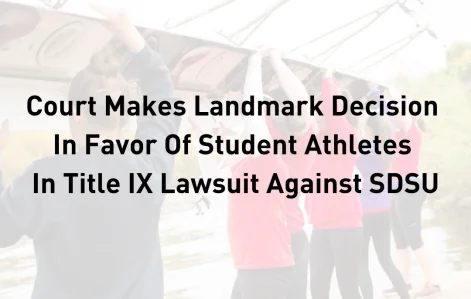You care about the people you live with. Whether it is a member of your family, a friend turned roommate, or your partner, you have likely all substantially changed how you live your lives as a result of the COVID-19 pandemic. Maybe workplaces have pivoted to a remote “work from home” structure, meaning you might be spending more time with your housemates than ever before. Other workplaces, including essential businesses, have been permitted to operate under modified conditions.
While many have returned to work, the risk of transmitting COVID-19 still exists, and in some areas, it may be more possible than ever. It is conceivable that one could catch the virus at their workplace and unintentionally bring the illness home, where mask use and distancing are not typically practiced among housemates. This would be unfortunate enough, but there are situations where your roommate or loved one has an especially high risk for developing severe illness due to COVID-19. These preexisting conditions likely shape the level of risk they are willing to individually take. However, if you do not share these conditions, you may still be expected to work.
You may be wondering, then, if you have any employee rights if someone you live with is at particularly high risk for developing severe illnesses as a result of COVID-19. Below, we cover what California and federal guidance requires in these situations.
Am I Entitled To Any Accommodations If My Roommate Could Be Severely Injured by COVID-19?
In short, the answer is probably not. While California and federal laws require employers to provide reasonable accommodations to pregnant employees and employees with disabilities, including when pregnancy or disability puts them at greater risk for severe illness from COVID-19, these accommodation laws do not definitively extend to an employee’s family member or housemate that is high-risk. This is especially true if the only factor contributing to that person’s high-risk status is their age. Age has statistically shown to be a significant factor in the severity of illnesses experienced following COVID-19 transmission. Because age is not considered a disability, employers are not strictly required to reasonably accommodate employees whose only concern stems from the age of housemate.
What this means is that an employee who does not independently need an accommodation for their own disability or pregnancy generally will not be entitled to an accommodation. This can result in requests to telework to avoid potential exposure to COVID-19 will be denied if the only reason for the request is to protect a high-risk hosuemate. Despite this, employers may still choose to provide such accommodations to non-disabled employees; however, in doing so, the employer must be sure to provide such accommodations consistently. An employer can intentionally or inadvertently violate the law if they play “favorites” in granting telework or other accommodations on these terms. If an accommodation is extended to one employee with high-risk housemates, that same accommodation must be granted to other employees with similar situations.
Eligible employees are also entitled to unpaid, job-protected leave to care for a spouse, parent, or dependent child that actually has (and is not just at risk for) a serious health condition, including COVID-19. If a high risk housemate tests positive for COVID-19, for example, you have the right to take protected (though unpaid) leave to care for them while they are ill. This can become especially important to responsibly behaving during the pandemic: If you live with them and they test positive, you are also likely to be exposed and should avoid returning to the workplace until you have been cleared through testing.
How Associational Discrimination Could Influence Cases Involving High-Risk Housemates
There is one potential workaround in California that could benefit those seeking accommodations to protect their high-risk housemates. This caveat concerns the lesser-known claim for “associational discrimination.” California and federal laws prohibit discrimination and harassment based not only an employee’s protected status – including disability, age, national origin, sex, or pregnancy status – but also on an employee’s association with an individual within a protected class.
For example, it is unlawful to refuse to hire, segregate, send home, demote, or terminate employees because of their association (including marriage or cohabitation) with someone based on their disability, age, national origin, pregnancy status, or sex. The Equal Opportunity Employment Commission (see FAQ D.13) made clear that federal associational discrimination law does not require an employer to accommodate an employee without a disability based on the disability-related needs of their family member or other person with whom they are associated.
California law, however, is less clear. In fact, while California has not specifically ruled on the issue, it has recognized that California’s associational discrimination law may reasonably be interpreted to require accommodation based on the employee’s association with a disabled person. In other words, if you have a housemate that is disabled (and thus high risk for developing a serious illness as a result of COVID-19), it may be considered associational discrimination if an employer refuses to accommodate or otherwise retaliate against you for requesting those accommodations.
If you believe you are being treated differently because of your association with a person who is high-risk for COVID-19, or if you have been denied accommodations for your high-risk family member or housemate, you may be able to hold your employer legally accountable. The employment law attorneys of Haeggquist & Eck, LLP will work with you to learn about your situation and seek fair and just compensation if your employer is breaking the law.
Contact us online or call (619) 342-8000 to learn more about how we may be able to support your claim.





